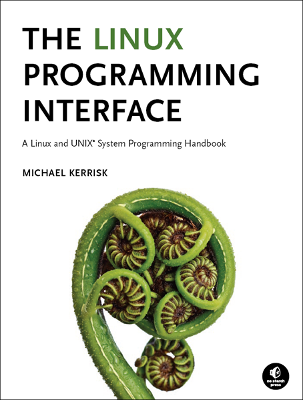Course code: M7D-SPLC02
![]() Download System Programming for Linux Containers course description (PDF)
Download System Programming for Linux Containers course description (PDF)
This course provides a deep understanding of the Linux technologies (namely, set-UID/set-GID programs, capabilities, namespaces, cgroups, and seccomp) used to implement container, virtualization, and sandboxing systems. (These are the technologies used to build systems such as Docker, LXC, Firejail, and Flatpak.) The course also provides an understanding of the core APIs used to build system-level applications that run on such systems. Detailed explanations and carefully designed practical exercises provide participants with the knowledge needed both to troubleshoot container and sandboxing systems and to write complex applications that run on those systems. (The course does not cover administering container systems such as Docker and LXC, but by completion of the course participants will have a good understanding of various aspects of the underlying implementation and operation of such systems.)
Note that this course is similar to the 4-day Linux Security and Isolation APIs (M7D-SECISOL02) course, but adds an initial day that covers a range of fundamental system programming topics.
Parts of this course are also available in smaller pieces:
For a picture of how these courses interrelate, see the course overview.
The course employs a lecture+lab format.
The audience for this course includes designers and developers who are building, troubleshooting, and administering system-level applications for Linux-based container systems.
In order to get the most out of the course, participants should have:
Note: previous system programming experience is not required.
A significant part of the course is spent on practical exercises. The lab sessions also provide participants with the opportunity to obtain one-to-one assistance from the trainer on the course material and exercises.
Course participants receive course books of around 600 pages.
The course books include all of the slides and exercises
presented in the course.
Some notable features of the course books are the following:

In addition to the course book, participants receive a copy of The Linux Programming Interface, in either ebook or printed form (or, when possible, both).
The following samples gives some idea of the course content and style of the course materials:
For onsite and virtual onsite courses, please email training@man7.org regarding availability and pricing.
| Date | Location | Maximum participants | |
| 9-13 February 2026 | Online: UTC-8 timezone (Americas/Pacific) | 14 | Registration |
| 18-22 May 2026 | Online: UTC+2 timezone (Europe) | 14 | Registration |
Online courses in Europe timezones are normally timed around Berlin time, starting at 08:00, 08:30, or 09:00. Unless otherwise noted, online courses in Americas timezones are normally timed around New York time, starting at 09:00 or 10:00. Depending on the length of breaks, classes typically run for 8 to 8.5 hours per day.
For public 5-day online courses, the per-attendee price is €3300 reduced to €3200 when booked (and either paid or a company purchase order is supplied) at least 4 weeks before the start of the course. (In addition, 19% German VAT is charged for participants attending from German locations; 19% German VAT is also applicable for private attendees in any location in the European Union without a VAT ID.)
Currently (and for the foreseeable future), public versions of this course are delivered only in online format.
Discounts are available for multiple attendees from the same company or organization; please inquire at training@man7.org for details.
Michael Kerrisk has a unique set of qualifications and experience that
ensure that course participants receive training of a very high standard:

For more information about the trainer, as well as many reasons why you might want to consider choosing man7.org training courses, please see reasons to choose man7.org training.
For further inquiries about the course, please get in contact via one of the following methods:
If you would like to be added to a mailing list to receive notifications of public training courses that are scheduled in the future, send a mail (noting your location) to training@man7.org.